It’s Goal Setting Tuesday!
Today at morning assembly, we talked about the importance of getting outside our comfort zone and getting into our “growth zone” as we try new things at camp. Camper Jojo shared about how she’s gotten out of her comfort zone and learned many new skills over her eight summers at GAC. We also talked about setting SMART goals for this camp session.
Comfort Zone & Growth Zone
We talked about how each of us has our “comfort zone” of activities we’re accustomed to and we feel totally relaxed doing. When we’re trying new things and in our “growth zone,” our hearts may be racing a little bit and our breathing can get more audible. We naturally feel a bit of stress and discomfort, because we are experiencing something new. 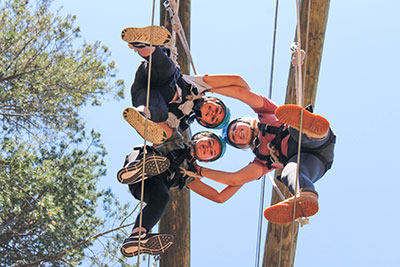
Sharing our nervousness with others, and understanding that most of us feel the same way when we’re trying something new, can help us push through the discomfort and discover new things we really enjoy at camp. An example we talked about was going on the high ropes course. Many of us feel nervous about being up so high, but for campers like Jojo, who’ve been at camp for many years and gone across the ropes course numerous times, it can start feeling comfortable up there. To get in our growth zone at an activity we have a lot of experience with, we need to try a new skill – like going across the course blind-folded!
For some of us, an activity is just too far outside our comfort zone right now, and that’s okay, too. That is what we can call our “red zone” or “blackout zone,” and it’s okay to pull back and just take baby steps into our growth zone as we expand our comfort zone trying new things.
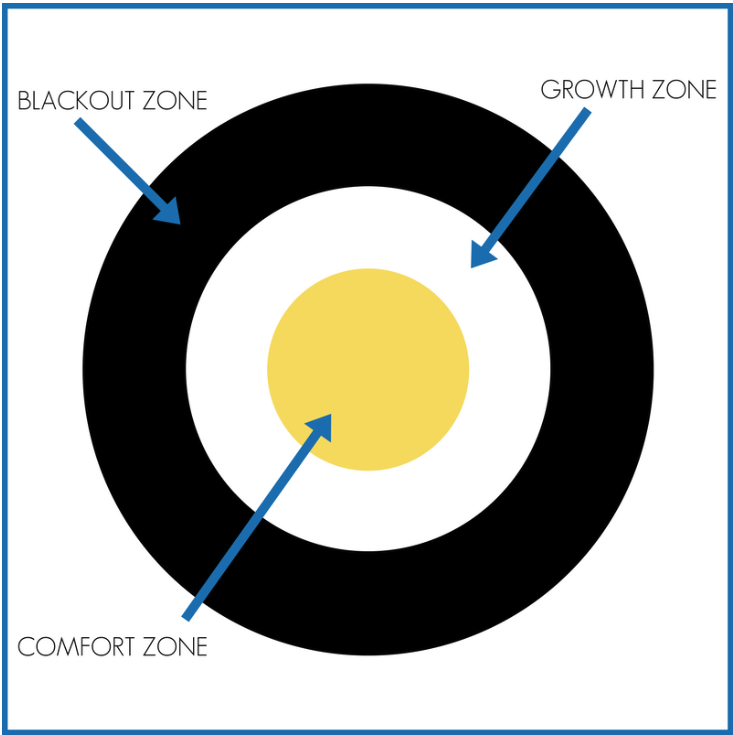
Setting SMART Goals
At tonight’s cabin campfires, the sharing topic is our goal(s) for the session. We talked about creating SMART goals and reviewed the SMART Goal acronym:
Specific
Measurable
Attainable
Relevant
Time-Based
Download your own copy of our SMART Goal poster by clicking the image below. 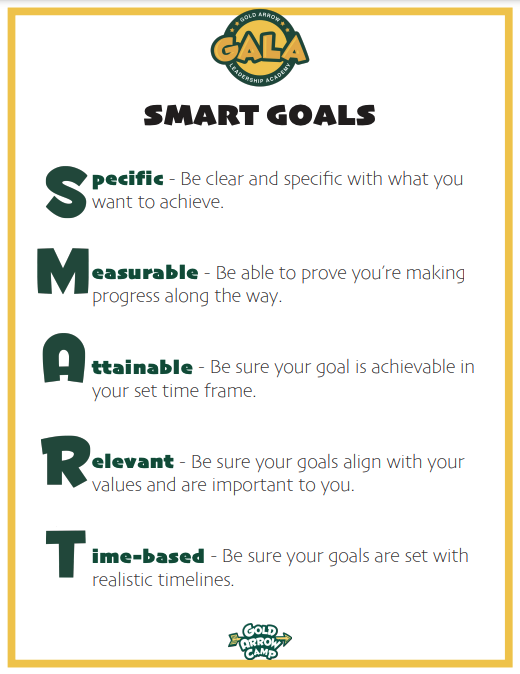
We also gave campers some examples of goals related to friendships or activities. The goal examples were:
Write three WOWs today to encourage my friends.
Learn to capsize and right a sailboat by the end of Session 2.
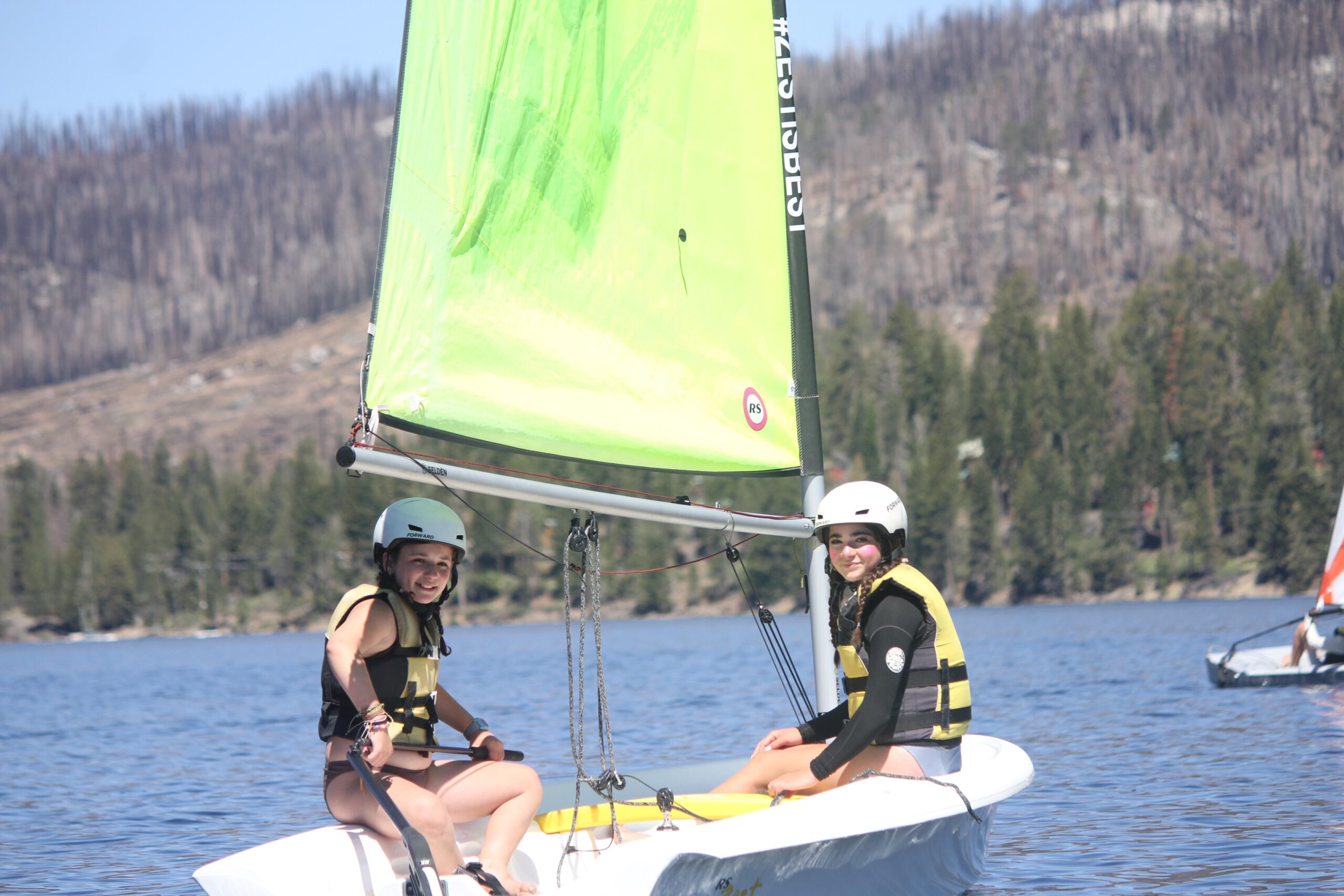
We brainstormed action items for learning to capsize and right a sailboat and campers came up with:
- Sign up for sailing for free time to get in extra practice.
- Ask questions and listen to coaching from sailing instructors.
- Learn from mistakes.
Related
Why Kids Need to Get Uncomfortable
Grit is Grown Outside the Comfort Zone
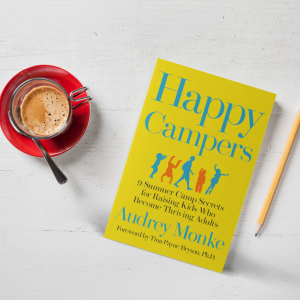 Want to read more about bringing some of the “magic” of GAC home? Check out Audrey “Sunshine” Monke’s book HAPPY CAMPERS, which is available on Audible!
Want to read more about bringing some of the “magic” of GAC home? Check out Audrey “Sunshine” Monke’s book HAPPY CAMPERS, which is available on Audible!
Today’s Friendship Skill: Introduce Yourself!
Monday evening at Camper Orientation, we reviewed the important friendship skill (especially when you’re at a new place!) of introducing yourself to others. Campers practiced introducing themselves to a camper in another cabin group (since they already met everyone in their own cabin group yesterday).
We’re already making friends here at GAC!
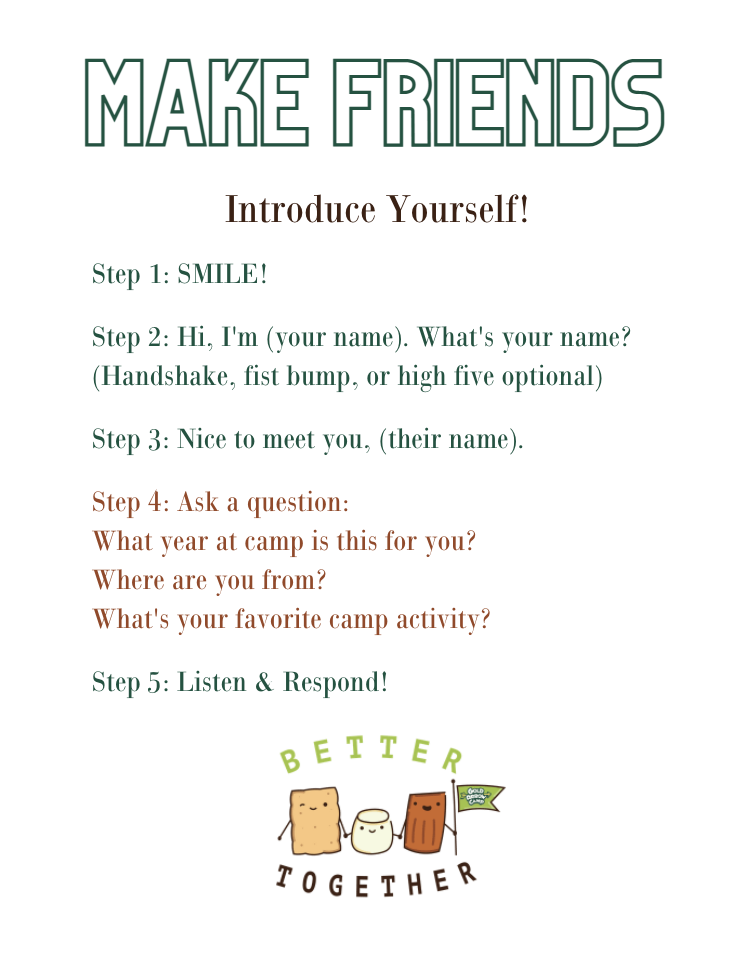
Resources/Related
7 Simple Steps to Teach Kids to Introduce Themselves
How To Pack For Camp
Packing for camp is the start of your child’s independent camp experience. Please have your child participate in packing for camp so that he/she knows where to find their clothing and other items. Campers who don’t participate in packing often don’t know what they have or where to find things, which makes it harder to acclimate to camp. Be sure to download and print the appropriate packing list.
Luggage
- For our two-week (and longer) sessions, we recommend campers pack in two pieces of luggage. One larger piece (soft-sided trunk or footlocker) can be used for most of the camper’s clothing. A smaller duffle bag can be used for sleeping bag, pillow, and other equipment that doesn’t fit in the main piece of luggage. The smaller duffle bag will be used for campers who travel to and from Shaver Lake. For campers traveling by air and coming with only one piece of luggage, a backpack or small sport-sized duffle bag can be packed within your main bag and used for the Shaver trip. A small backpack is also useful for carrying a towel, shower supplies, or other equipment around the camp. Please note that campers do not unpack into drawers or cubbies in the cabin during their stay.
- All luggage must be tagged with camper’s name. Luggage tags are sent to camp families in April. Additional luggage tags will be available at the bus stops and camp on the first day of each session.
Labels
- All of your camper’s clothing and belongings must be clearly labeled with your camper’s full name. Items that are not labeled are unlikely to be returned to your camper if lost in the cabin or around camp. A sharpie marker, iron-on or stick-on labels, or stamps all work for labeling.
Shoes
- Our terrain at camp is rough and uneven, and appropriate footwear is a safety requirement. Please make sure your camper has at least one pair of closed-heal and closed-toe shoes that have adequate tread for walking on rocks, dirt, and other uneven surfaces. Running shoes, hiking shoes, or other athletic footwear work well at camp, as long as they fit the camper well and have adequate tread. Other types of shoes (flip flops, Crocs, Converse, etc.) can be worn in the cabin and at the waterfront, but closed-heal, closed-toe shoes must be worn while walking around camp, participating in activities, and traveling to and from camp.
Younger Campers
- For younger campers, we recommend placing like-items together in their main piece of luggage to easily access what they need for the day or activity. For example, stack all short-sleeve t-shirts together, include underwear in a packing cube or plastic zip-lock bag, group pants in one area, etc.
Climate
- Gold Arrow Camp is located at 7000 feet elevation, and our night time, mountain temperatures can get very chilly. Be sure your camper’s sleeping bag is rated to at least 30 degrees F (or lower), so that your camper will be warm at night. Sleeping bags used for indoor, overnight sleeping are not sufficiently insulated for camp use.
What Not To Bring
- Do not send any of these items, as they are not allowed: food, candy (including gum), cash, water guns, silly string, water balloons, sling shots (or any other weapons), electronic games, headphones, e-readers, cell phones, fireworks, knives, matches, lighters, tobacco, alcohol, or illegal drugs. For campers traveling by air, cell phones, headphones, and travel money can be held in our office.
- Do not send valuable items such as expensive cameras and jewelry. We recommend campers use a disposable camera marked with their name.
- Send old clothes that do not require dry cleaning or special washing. Laundry service is provided for campers staying three weeks or longer. Urgent laundry will be done for campers staying for a one or two-week session. Do not bring irreplaceable items to camp, as they could get lost or damaged.
- Please do not send any personal athletic equipment (water skis, fishing poles, etc.). We provide top quality equipment that is sized for our campers.
How to Respond to a Homesick Letter from Your Camper
The Sad Letter
You’re anticipating with much excitement your camper’s first letter from camp. It finally arrives, and this is what it says…
“I want to come home!”
“It’s awful here.”
“I hate everything.”
“This is worse than prison.”
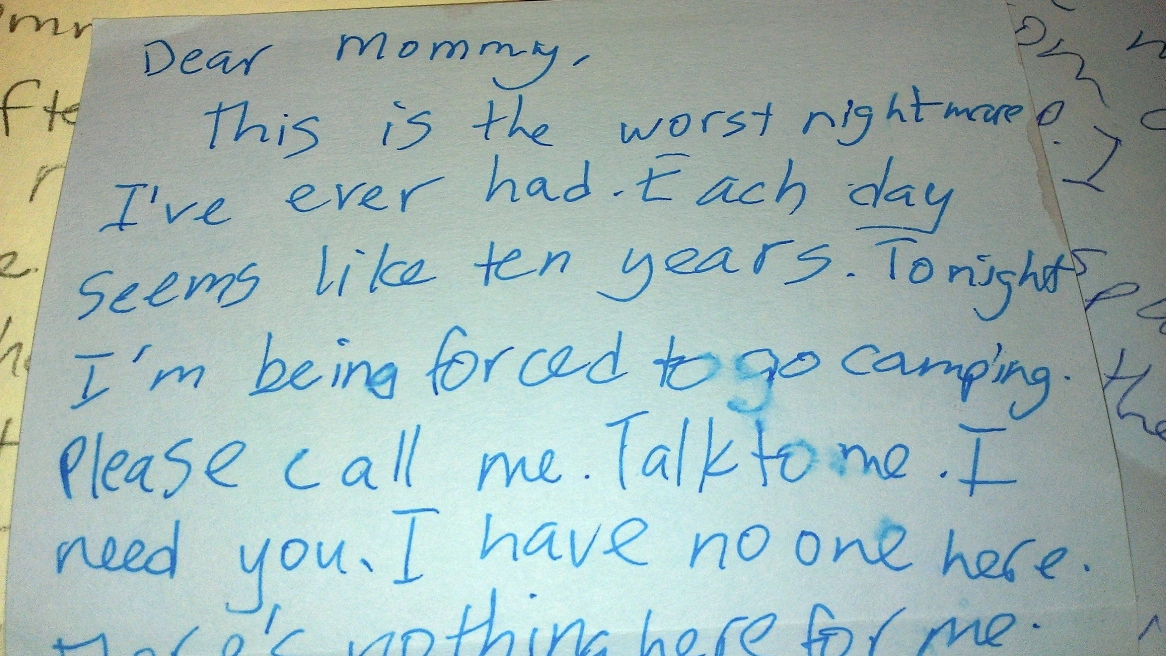
Your Options
Option #1: Hop in your car and drive to rescue your child immediately.
Option #2: Take a deep breath and think about possible next steps.
As a veteran camp director with a lot of experience helping campers (and parents) work through the difficult transition that often accompanies being away from home, especially the first time, I would highly recommend you choose option 2. It will be better for both you and your child.
Getting a sad letter from your child is difficult, but, as experienced camp parents will tell you, you should expect to receive at least one sad letter during your camper’s time at camp. Letters are usually written during quiet times when campers are feeling more reflective. Often, even when they’ve written a super sad letter, the camper is actually adjusting well to camp and is letting you know the emotions they felt during a particularly down time (like rest hour or bedtime).
Next Steps
If you feel uneasy after hearing from your camper, here are a few steps you can take (after your deep breaths, of course):
- Remind yourself that homesickness is an emotion that most campers feel to some degree at camp and many college students experience, as well. Perhaps you can remember one of your own experiences being homesick – at camp, at college, or while studying abroad.
- Call a friend who is an experienced camp parent who has likely received one of these letters in the past.
- Know that in the vast majority of homesickness, the fun and excitement of camp eventually far outweigh any sad feelings.
- Contact the camp via phone or email and ask for an update on how your camper is doing. Let them know you got a sad letter and want to see how your child is adjusting. Remember, the letter could have been written and sent a few days ago, so the emotions expressed may not still be accurate.
- Write an encouraging letter to your camper. Acknowledge that you read their letter and tell your kid you want to be updated on everything, the sad moments but also the activities and new friends and adventures they’re having. Here are some ideas for positive, encouraging messages you can send to your camper.
Positive Messages for a Homesick Camper
Whether you’re communicating with your camper via postcards, letters, email, or phone, here are some ideas for how you can respond to their sad, homesick pleas from camp.
Validate Feelings
Your child might be genuinely feeling severe discomfort from being away from home. Acknowledge that by saying, “I know you feel miserable right now and I’m sorry this is so hard for you.” However, if they ask to be picked up early or talk to you on the phone, remind them that you’re going to stick with letter-writing only and that you’re not coming to get them early!
Provide Encouragement
Reassure them that you have confidence in their ability to face this challenge and have a great camp experience. Say, “Even though you don’t feel like you can do this, I know you can.” Let them know how proud you are of their independence and how excited you are to hear of their accomplishments when they finish camp.
Redirect
Redirect the conversation to something positive. Comment on a recent picture you saw of them online: I saw a picture of you jumping off your paddle board! It looked like so much fun! You can also help your child focus on the positive by reminding them of some of the positive things of camp that they don’t get to experience at home: “I can’t believe you get to have a campfire with marshmallows every night. Lucky duck!” Sometimes kids are concerned that they’re missing out on things happening at home or get worried about you missing them too much. Update them on some of the boring, busywork happening at home to assure them that camp is where they’re supposed to be. Asking questions about an activity they were particularly excited about or about their cabin mates and counselors can also be fun.
Remember the WHY of camp
As you deal with hearing about your child’s discomfort, it’s important to remind yourself and your camper why you chose the camp experience in the first place! Sometimes homesickness is part of the growth process, but we can instill confidence in our campers by encouraging them through uncomfortable and challenging situations rather than completely removing them from all sources of discomfort.
For many kids, camp is their first step toward independence. Leaving the familiarity of home for the first time, most kids experience some degree of discomfort or unease as they adjust to new people, activities, challenges, and experiences. These feelings of discomfort are completely normal, and it is important to discuss the normalcy of homesickness and feeling uncomfortable in new environments before your child leaves for camp.
In Homesick and Happy, Michael Thompson says that “Homesickness is not a psychiatric illness. It is not a disorder. It is the natural, inevitable consequence of leaving home. Every child is going to feel it, more or less, sooner or later. Every adult has had to face it and overcome it at some point in life … If you cannot master it, you cannot leave home.”
Real growth only comes when we’re stretched beyond our comfort zones, and that is why so many campers grow more confident during their time at camp: their comfort zone is stretched and they succeed in meeting the new challenges. Some kids end up adjusting and feeling comfortable quickly while others have a harder time adjusting. Either way, there are several ways you can both prepare and support your camper before and during their time at camp.
The biggest struggle for parents often is having to hear about the discomfort of their children as they navigate homesickness, but experienced camp leaders are well-equipped to encourage and come alongside both you and your child to make camp the most positive experience possible!
Article originally published at Sunshine Parenting.

Audrey “Sunshine” Monke, MA, has been the owner of Gold Arrow Camp since 1989 and currently serves as the Chief Visionary Officer. In addition to her vision-casting and mentoring at GAC, Sunshine is an author (Happy Campers: 9 Summer Camp Secrets for Raising Kids Who Become Thriving Adults), podcast host, speaker and coach on the topics of parenting, social skills, and happiness. Find out more at her website, Sunshine Parenting.
Visit Sunshine Parenting for more summer camp-related posts & podcast episodes.
Related Posts & Podcast Episodes
Sunshine & Michael Thompson, Ph.D. on the GAC POGcast
Homesick and Happy Book Discussion Guide
“Kidsickness: Help for First-Time Camp Parents”
Resources
10 Desperate Letters I Wrote From Sleepaway Camp
P.S. I Hate it Here (Book of letters from camp)
Homesick & Happy: How Time Away from Parents Can Help a Child Grow (book) by Michael Thompson, Ph.D.
Summer Camp Handbook (online edition), by Dr. Christopher Thurber
Messages For An Anxious Camper
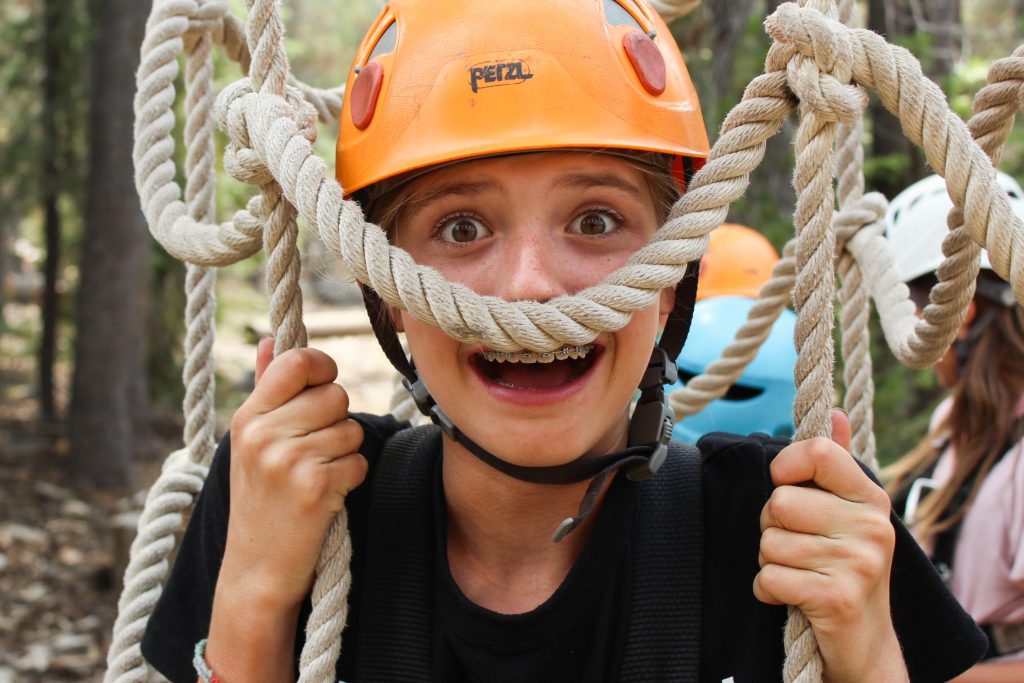
Read more of Sunshine’s camp-related posts at her website, Sunshine Parenting.
“Children want to be independent, and they realize that they cannot be truly independent until they beat homesickness, even when they have a painful case of it.”
– Michael Thompson, PhD., Homesick and Happy
Recently I spoke with a mom whose 11-year-old son is coming to camp in a few days. He’s nervous. He had a negative experience at a one-week science camp. He doesn’t think he can “make it for two weeks” and is worried he’ll be too homesick to make it at camp. I chatted with the mom and gave her some key messages to communicate to her son. She asked for them in bullet points in an email, and I thought there are probably others who might benefit from this same list, so I’m sharing this with anyone who has a child suffering from pre-camp anxiety.
Before I share my list, let me say that if you are not a camp proponent and don’t plan on sending your child to camp, you should probably not read any further. I am a huge supporter of camp and recently had a JC (Junior Counselor) tell me that “Camp made her who she is today.” So, I think that camp is a great thing for building kids’ independence and confidence. I have also seen many kids work through some pretty painful emotions at camp, so I know that camp is not easy for all kids.
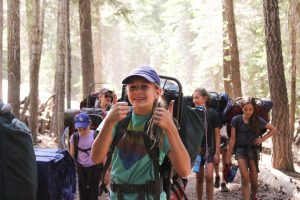 We have 7-year-olds at our camp who do great during our two-week sessions. They are the ones who’ve begged their parents to let them come to camp and generally have older siblings who’ve attended camp. I also talk to a lot of parents with older kids who “aren’t sure if they’re ready for camp.” One thing I’ve learned after close to three decades at camp is that the same kids who are anxious and hesitant about going to camp when they’re nine or ten will still be anxious when they’re 13. And they may not be interested in going away to college when they’re 18, either.
We have 7-year-olds at our camp who do great during our two-week sessions. They are the ones who’ve begged their parents to let them come to camp and generally have older siblings who’ve attended camp. I also talk to a lot of parents with older kids who “aren’t sure if they’re ready for camp.” One thing I’ve learned after close to three decades at camp is that the same kids who are anxious and hesitant about going to camp when they’re nine or ten will still be anxious when they’re 13. And they may not be interested in going away to college when they’re 18, either.
So, as a parent, you need to decide how to approach your child’s separation anxiety, as well as your own. You can avoid it and not send them to camp and hope that they develop independence in other ways, which is definitely possible. Or, you can bite the bullet, give them these positive messages, and send them off to camp with a smile, knowing that it may be hard for them, but they will grow from the experience.
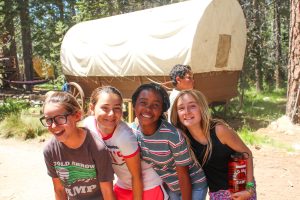
In Michael Thompson, PhD.’s book Homesick and Happy, he says “It is the very challenge of camp that makes it such a life-changing experience for so many children.” I know there are many parents and children who just can’t stomach the idea of going through some painful time apart. Again, you need not read further if you are not sending your reluctant child to camp.
This post is for those of you who have decided that your child is going to camp, and especially for those of you who had a previously excited camper who is now having last-minute camp anxiety. Here are some messages you can give prior to dropping your camper at the bus or at camp. Pick and choose, and of course, use your own words, but acknowledge your child’s feelings and empathize with them while holding firm in your confidence in their ability to succeed and your belief that camp will be good for them.
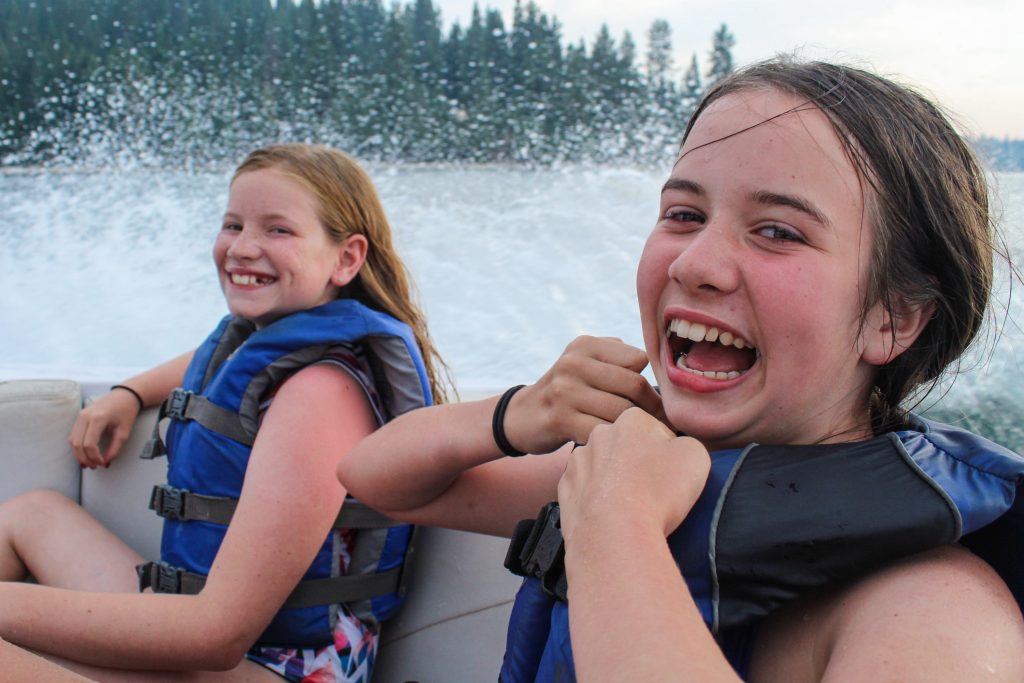
Without further ado, here are some messages to give to your anxious camper:
-
Let them know that missing home is okay.
“You may feel homesick, and that’s okay. A lot of kids feel that way. That just means that you love us and you love home. I feel homesick when I’m on trips, too. Missing home is part of life. But I know you can still have fun at camp, even if you feel sad sometimes.”
-
Reassure them that there are people at camp who will take care of their needs.
“There are adults at camp (counselors, directors) who are there to take care of you and help you with anything you need. They can help with things you normally come to me about. Let them know if you are feeling sad, and they can help you. They have lots of experience working with kids who are away from home for the first time.”
-
Talk with your child honestly about the importance of starting to develop some independence.
Something along the lines of: “It may seem like a long way off, but in a few years, you’ll be ready for college. I want you to feel confident in your ability to live away from me so that you can choose any school you like, even if it’s far away from home. Think of camp like your practice time for when you’re older and ready to move away for school or a job. You’ll get better at being independent by starting now, when you’re young, with short spurts of time away. Some kids aren’t doing well when they start college because they don’t have any experience being away from home. I want you to feel great when you go to college because you’ll know that you’ve already been successful with short camp stays.”
-
Share the reality that many good things in life come with some pain and failure.
If you have a story from your own life of something that you had to work hard at or had to go through difficulties in order to master, this is a great time to share. Something along the lines of, “Many good things in life aren’t easy at first. Learning a new sport or trying something new is really hard. Sometimes you have to get out of your comfort zone to discover something you really love. If you never go through anything hard, you’re going to miss out on some great experiences. The first few days of camp may be hard, and that’s okay. I know you’ll work through it and figure out what makes you feel better. I have confidence in you, and I am so proud of you for going to camp and trying this new adventure!
-
Let them know that you are confident in them.
“I am so excited that you get to go to camp this year. I know it’s going to be such a great experience for you and that you are ready for this.” If you went to camp, share with your camper what you liked about it and how you grew from the experience.
-
Make sure they know you want to hear about everything.
“Every day comes with its good and bad parts. When you’re at camp, I want you to write me letters and tell me all of the stuff that you’re doing and feeling. If you feel homesick at rest time, tell me about it, and also tell me what you did to help yourself. Did you talk to your counselor? Keep yourself busy playing cards with friends? Write me a letter? I also want you to share good stuff. Did you get your favorite food for lunch? Try rock climbing? Get up on a kneeboard? I want to hear both the good and bad things about camp in your letters.”
-
If your camper asks you if you will pick him up if he’s sad, you need to let him know that you are not going to pick him up early.
“Even if you’re a little homesick for the whole time you’re at camp, you’re going to feel so much better about the experience if you stick it out and make the best of it. Most kids feel better after a few days of getting settled in and adjusted, and I know you’ll feel great once you let yourself relax and just start enjoying all the fun things at camp. I’m not going to pick you up early, no matter what, because I know you will feel really proud of yourself for making it through camp, even if you have some hard days.”
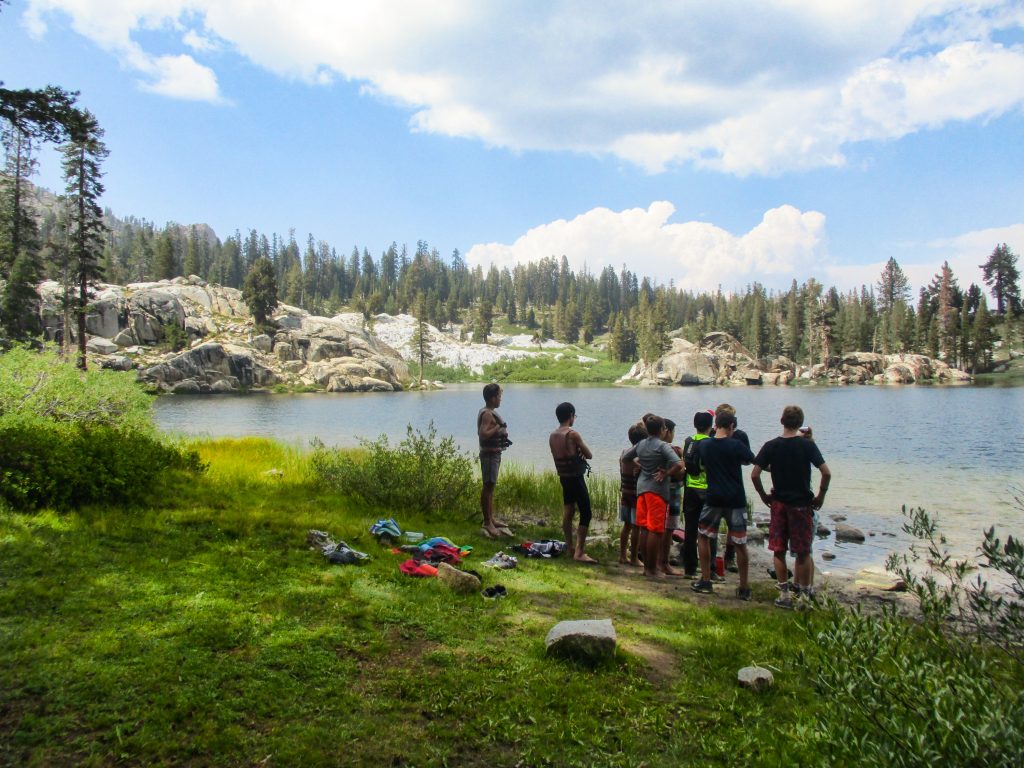
In Homesick and Happy, Thompson says, “Homesickness is not a psychiatric illness. It is not a disorder. It is the natural, inevitable consequence of leaving home. Every child is going to feel it, more or less, sooner or later. Every adult has had to face it and overcome it at some point in life … If you cannot master it, you cannot leave home.”

I would like to note that you do not need to use all of these messages but instead choose the ones you think will resonate most with your child. What’s most important is that you express confidence in your child and in the camp experience. These same messages would be great as responses to a sad letter you receive from your camper.
I always tell the kids that the fun and happy feelings at camp usually far outweigh any sad feelings. Many kids tell me they “don’t feel homesick at all,” but there are some who struggle, especially during their first summer. Those kids seem to grow the most and feel the most pride in their accomplishment of staying at camp. If you are feeling worried about how your child will do at camp, know that you are giving your child a precious gift by allowing them this special time where they get to grow their wings.
Parking Your Helicopter
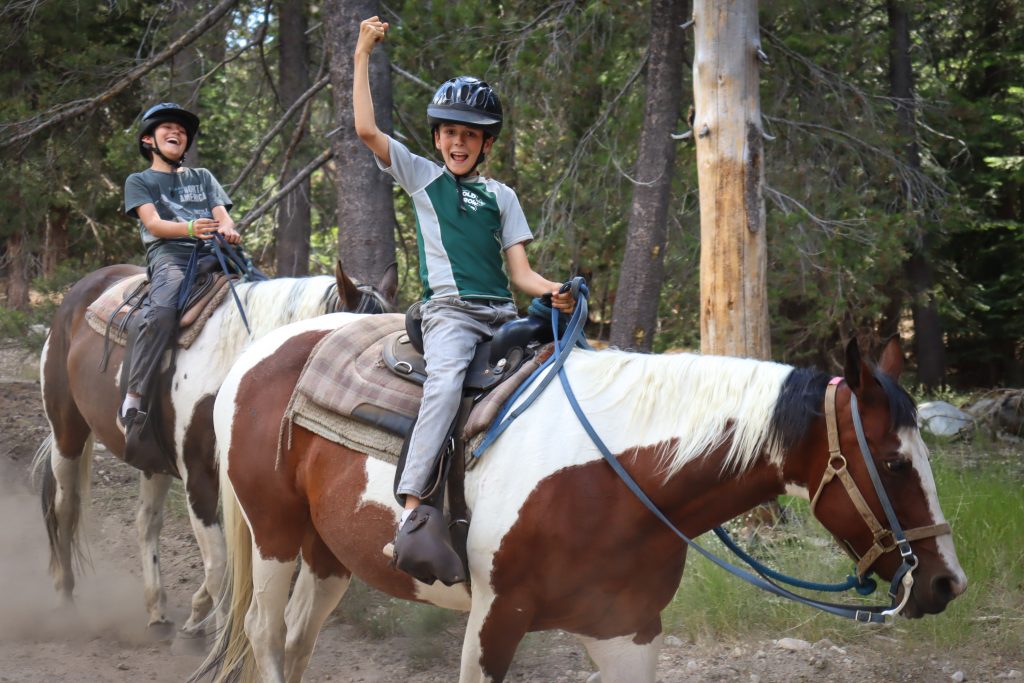 Originally published on Sunshine Parenting
Originally published on Sunshine Parenting
By Audrey “Sunshine” Monke
As parents of this generation, we’ve been told that great parenting means being super-involved with our children and always being in constant communication with them. We give them cell phones as soon as we feel they are ready to have a bit of independence so that we can be assured that they will call us the minute they need us.
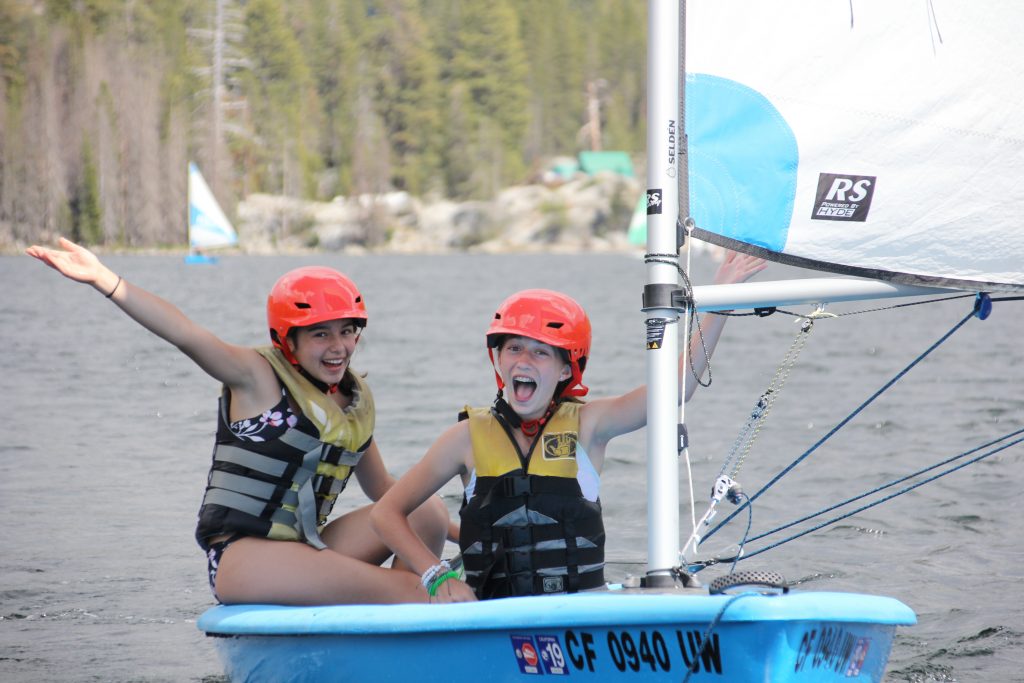
There are many benefits to this parenting style. We know our kids well and have developed close family relationships. We also know each of their homework assignments (and assist with a few of them), the drills they did at soccer practice (because we either coached their team or stayed and watched), and what they ate for snack at school. The downside to our “helicopter” parenting, though, is it makes it difficult for our children to develop their independence, problem-solving, and decision-making skills.
Hooray for camp! Without a cell phone (or their parent next to them) to immediately turn to when they are faced with a decision, campers learn to use other resources – including their own great minds. Without us watching them and being a reminder of what they’ve been scared of in the past, they challenge themselves and try something new. The confidence that results from their accomplishments and independence can be life-changing, and the best thing we hear from our campers and parents is that camp truly makes their life better.
According to past staff member and camper, Renee “Zippy” Tucknott, “Gold Arrow Camp taught me early in life that I can survive in the world without my parents making my decisions, and I am able to make my own decisions and choices that will impact my life. When I got to college, I experienced some of the same decisions and choices and already knew I could survive on my own.”
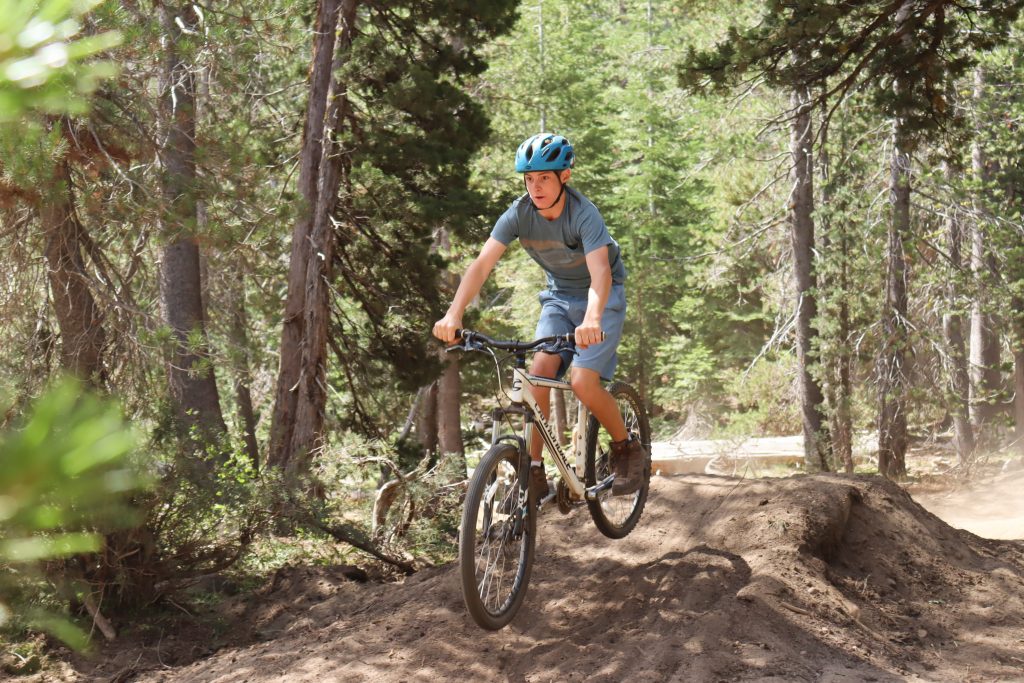
As technology has provided us with the ever-increasing ability to be in touch– immediately – with everyone, it has also given the children and young adults of this generation a crutch that we (those of us in our late 30s and up) did not have. When faced with a decision or problem with a friend, we had to rely on ourselves first and later discuss it with our parents. Now, kids are getting accustomed to calling their parents before attempting to solve the challenge on their own.
At GAC, we have a great support network to help our campers work through challenges, fears, and problems that may come up. They never feel “alone,” but they feel independent from their parents, and a lot of pride comes from that independence.
So, enjoy your child’s stay at GAC this summer and rest assured that while your helicopter is parked, your child is spreading their wings!
The Blessing of the Least Favorite Activity
Wendy Mogel’s best selling book, The Blessing of a Skinned Knee, resonated with me.
I can relate much of her message to camp and to my own family. I heard Dr. Mogel speak at a camp conference several years ago, and she continues to be active in the camp community. Many of our camp parents have heard her speak at school parenting events or have read her book. If you haven’t had a chance to read The Blessing of a Skinned Knee, I highly recommend it. In addition to sharing about the importance of letting our kids take healthy risks, and not always rescuing them from failure, Mogel gives many other valuable insights. She has recognized the value of camp experiences in the development of emotionally healthy kids, as you can read in the article “Camp Blessings” on her website.
A question I often get asked, especially by kids who haven’t yet been to camp, is “What if I don’t want to do an activity?” Sometimes it starts with a statement, “I don’t like horses. Do I have to do that activity?”
My short answer is, “You won’t be forced to do any activities, but you will still go with your group, and you will be encouraged to try.”
I think there are three main reasons kids don’t want to do a particular activity, and they are the same reasons why adults often choose to forgo some recreational options:
Negative Experience in the Past
A previous negative experience with the activity, usually not at camp and not with experienced instructors. Falling off a horse, being dragged behind a ski boat and not getting up, or getting lost on a hike are all examples of negative experiences that make a person naturally inclined not to want to try again.
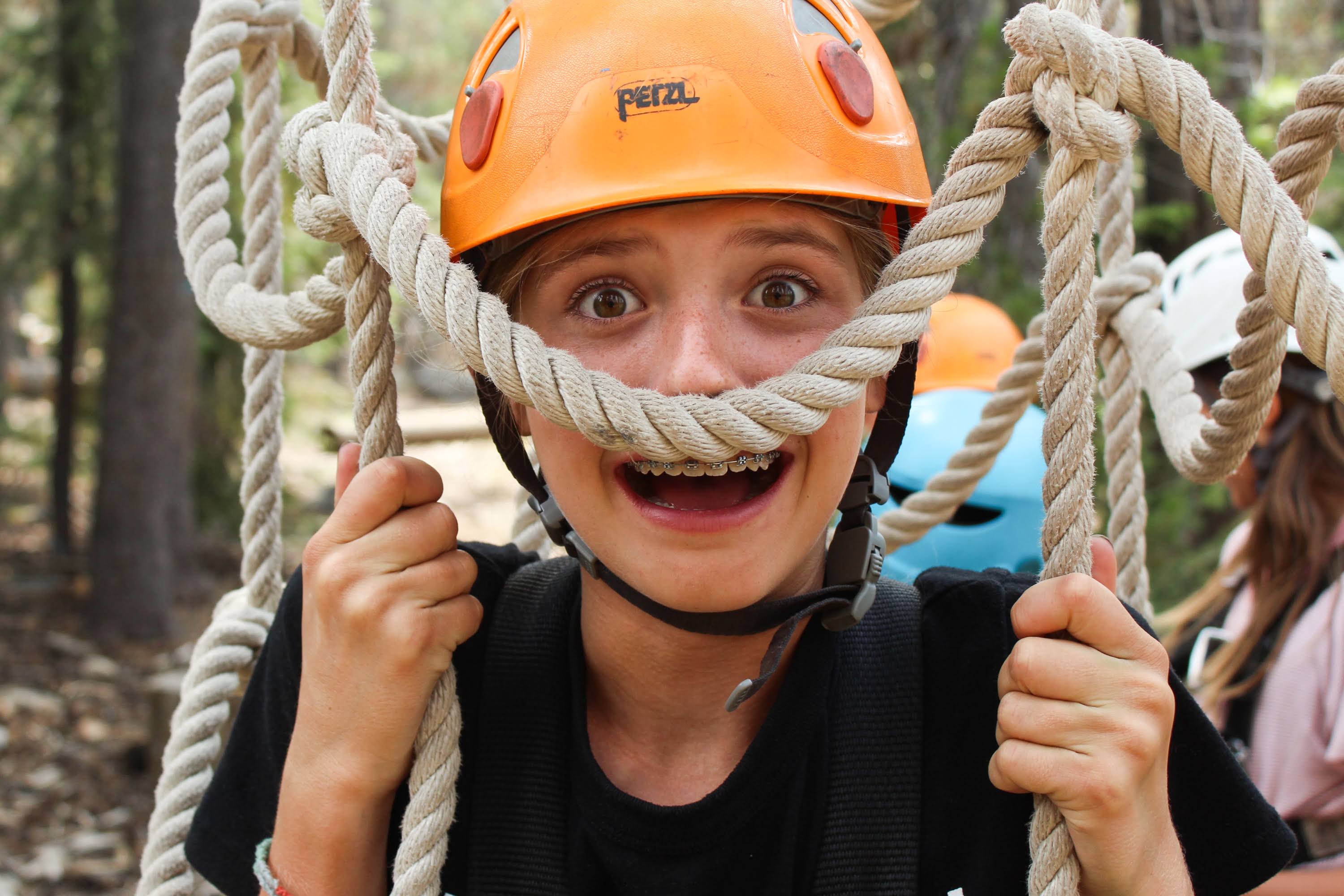
Fear
Fear of being humiliated. Fear of failure. Fear of heights. Fear of deep lake water. Fear of rocks. Fear of going to the bathroom in the woods. Fear of getting hurt. The list goes on and on.
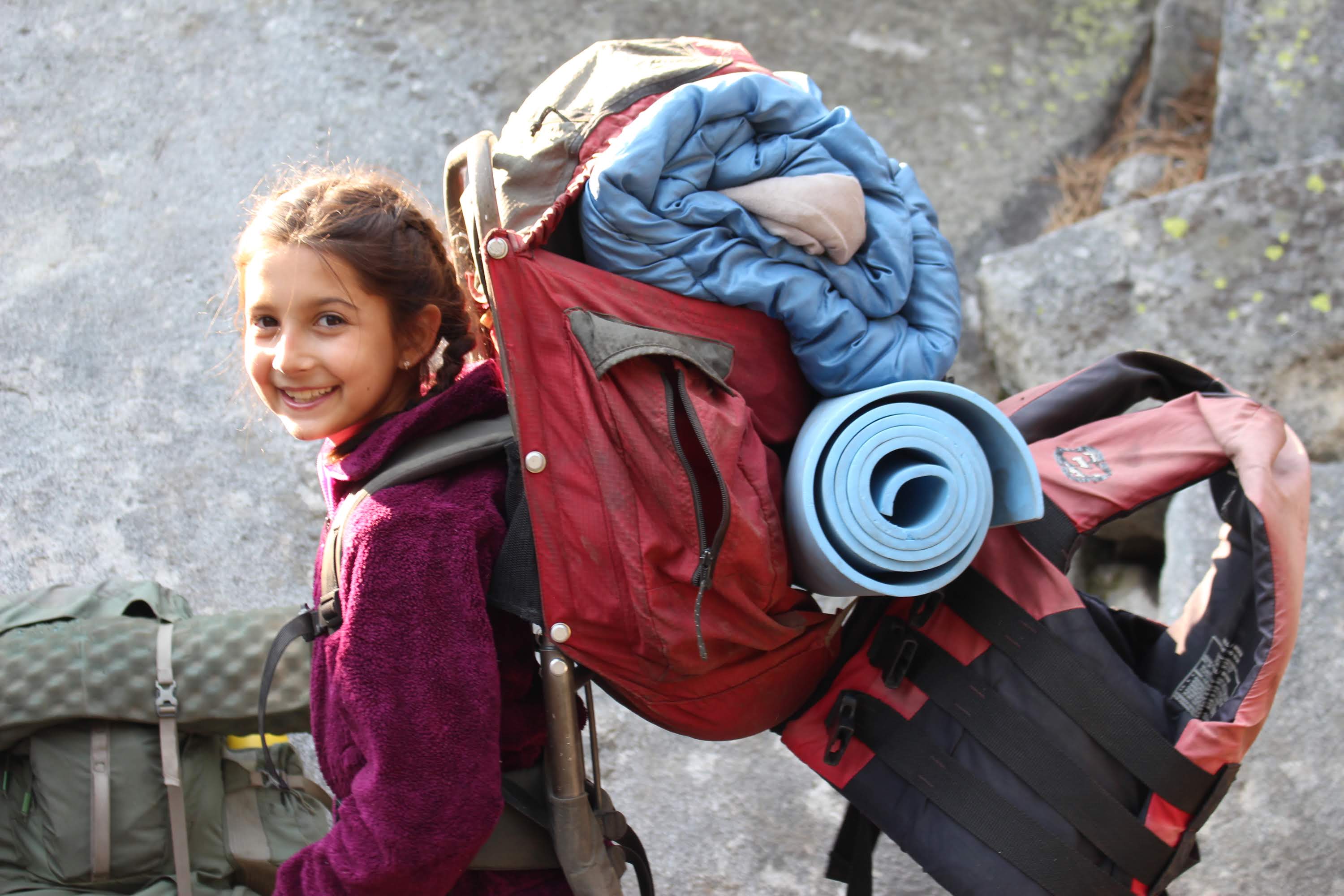
Not in Their Comfort Zone
Finally, another reason kids don’t want to try an activity is because, based on their perception of themselves or their past successes/failures, they think they won’t like it. It’s not in their normal repertoire of things they like and/or are good at.
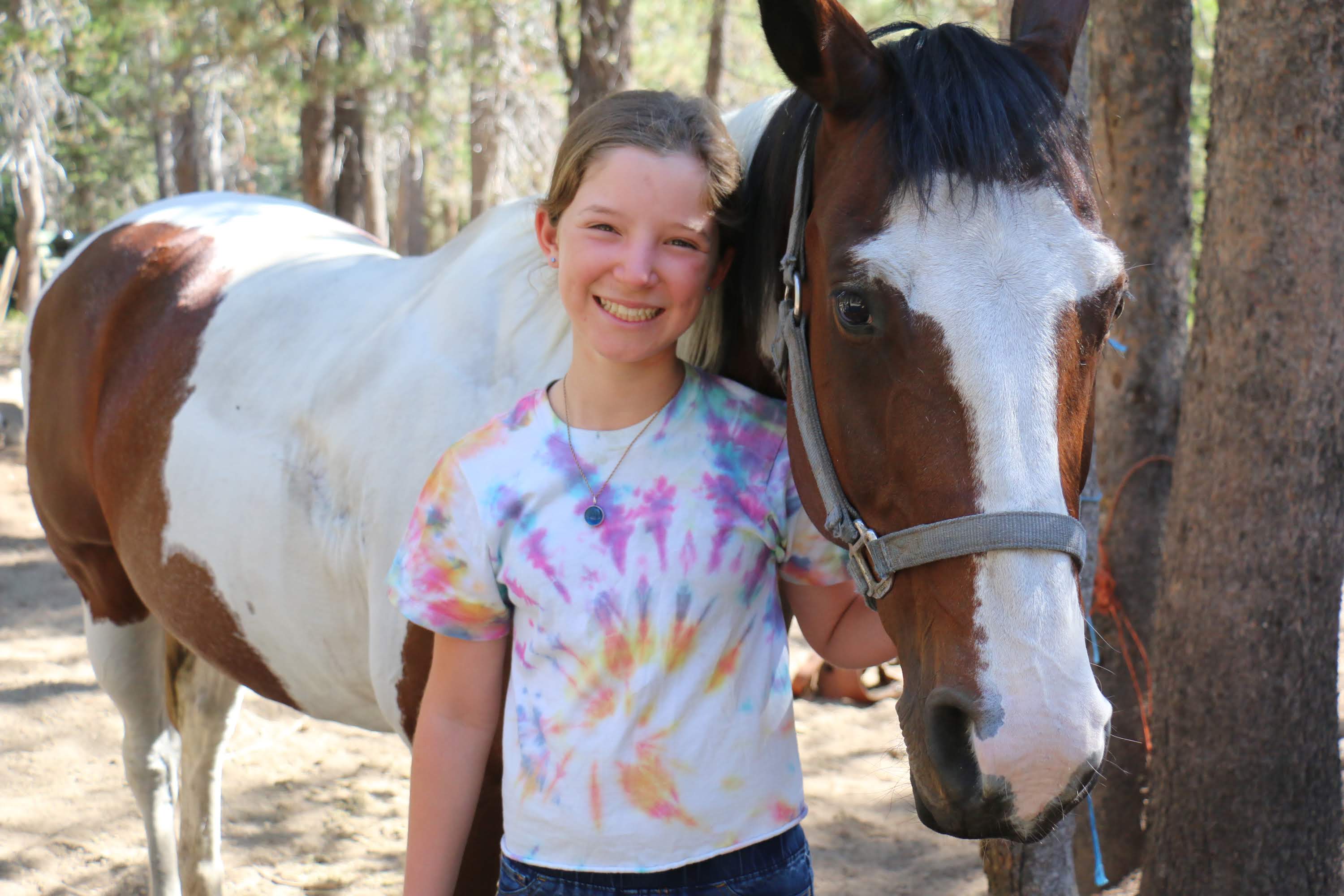
I’m sure there are other reasons for kids to not want to do an activity, but these are three that readily come to mind from what campers have told me over the years. Interestingly, the reasons kids don’t want to do an activity are the very reason trying the activity may be the best thing that happens at camp for that camper.
If a child doesn’t want to do an activity because of a previous negative activity, trying it at camp could lead to either a changed mind (and a new activity they like), or, at the very least, a not-as-negative experience to remember.
If a camper doesn’t want to do an activity because of fear, then trying the activity could be the most life-changing event that occurs for that camper during their camp stay. Overcoming fears and challenging oneself to attempt something that seems impossible can lead to great feelings of accomplishment and improved confidence. With the support and encouragement from cabin mates and counselors, campers feel on top of the world after successfully trying something they feared. For the camper with a fear of heights, climbing half-way up the ladder on the high ropes course will be celebrated as a huge accomplishment, and one that can make him/her proud. This is an example of something hard that leads to something good, a theme that Dr. Mogel stresses. The camp environment offers a supportive place for kids to learn how to overcome fears and accomplish things they didn’t think were possible.
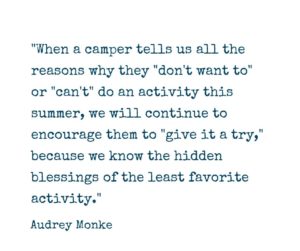 If a camper doesn’t want to do an activity because they don’t think they’ll like it based on their preferences or perception of themselves, trying something different offers an opportunity for expanded confidence. A camper who sees himself as non-athletic and more adept at target sports may shy away from the more physical activities, yet trying and accomplishing them could change his perception of himself in a positive way. A camper who likes shopping and clothes and sees herself as not an “outdoorsy” kind of person may dread going on a backpacking trip. Yet, the experience of cooking and sleeping outdoors could lead to an expanded view of herself and an appreciation for the many different facets of a personality. Sometimes, the activity a camper thought would be their least favorite becomes a favorite!
If a camper doesn’t want to do an activity because they don’t think they’ll like it based on their preferences or perception of themselves, trying something different offers an opportunity for expanded confidence. A camper who sees himself as non-athletic and more adept at target sports may shy away from the more physical activities, yet trying and accomplishing them could change his perception of himself in a positive way. A camper who likes shopping and clothes and sees herself as not an “outdoorsy” kind of person may dread going on a backpacking trip. Yet, the experience of cooking and sleeping outdoors could lead to an expanded view of herself and an appreciation for the many different facets of a personality. Sometimes, the activity a camper thought would be their least favorite becomes a favorite!
So, when a camper tells us all the reasons why they “don’t want to” or “can’t” do an activity this summer, we will continue to encourage them to “give it a try,” because we know the hidden blessings of the least favorite activity.
Article originally published at Sunshine Parenting.

Audrey “Sunshine” Monke, MA, has been the owner of Gold Arrow Camp since 1989 and currently serves as the Chief Visionary Officer. In addition to her vision-casting and mentoring at GAC, Sunshine is an author (Happy Campers: 9 Summer Camp Secrets for Raising Kids Who Become Thriving Adults), podcast host, speaker and coach on the topics of parenting, social skills, and happiness. Find out more at her website, Sunshine Parenting.
Visit Sunshine Parenting for more summer camp-related posts & podcast episodes.
Celebrate Friends’ Victories
Responding positively to others’ triumphs is an important friendship-building skill. If you can truly be as happy and excited for your friend’s victory as if it were your own, that’s an excellent relational skill. When your friend beats you in a race or gets a better grade on a test, the natural response might be jealousy, but celebrating and congratulating your friend will be great for your friendship. When we truly celebrate others’ accomplishments, our connection gets stronger and hopefully, our friend reciprocates by being happy for us and our victories.
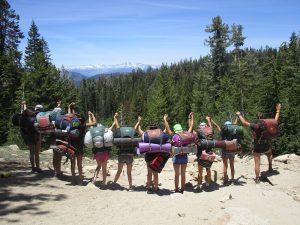
Here are some ways we can celebrate our friends:
Write a note.
Bring them a balloon.
Send a congratulatory text.
Make a poster.
Surprise them with a treat at school.
What are some other ways we can celebrate our friends? Let us know how you like to celebrate your friends!
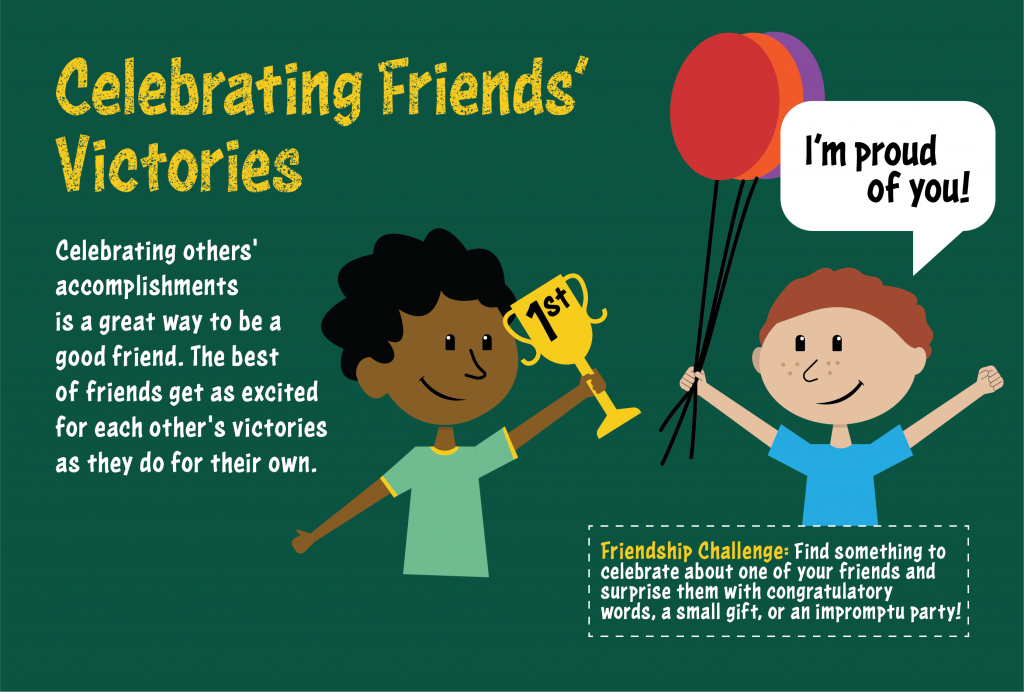
Introduce Yourself Using WESTI
Introducing yourself (Can you approach people on your own and meet them?) and introducing others (Can you help people meet one another?) are very basic and useful social skills. It’s a friendship skill we teach campers and encourage them to practice all year!
We use the acronym WESTI to remind us of some simple steps to introducing ourselves.
STEP 1: WARM SMILE
STEP 2: EYE CONTACT
Smile at the person you want to meet and make eye contact.
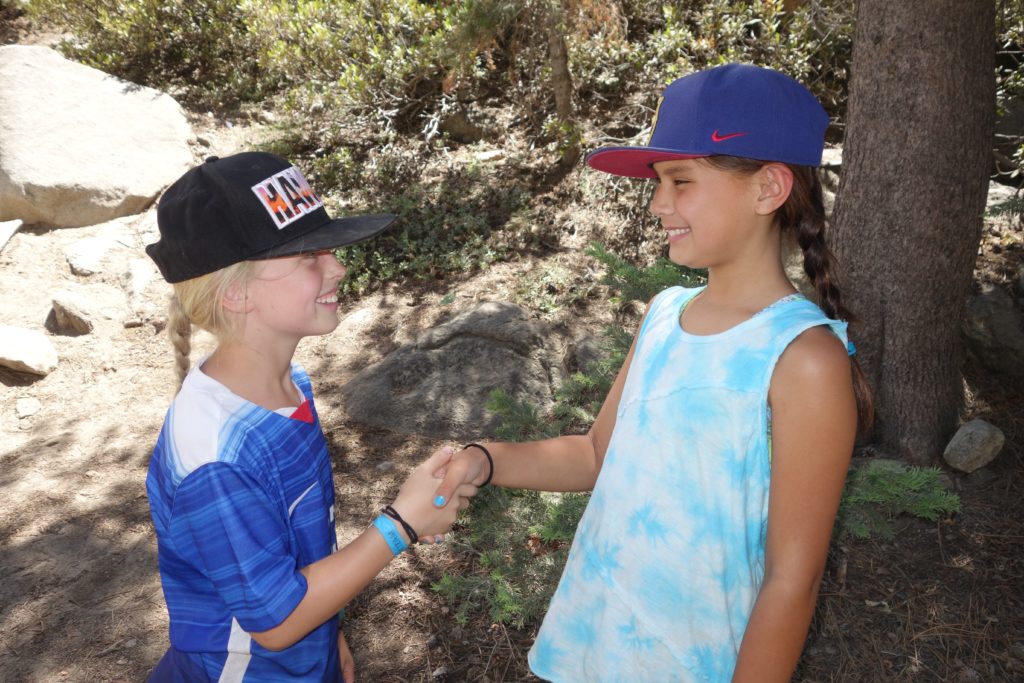
STEP 3: SHAKE THEIR HAND, GIVE A FIST BUMP OR WAVE
STEP 4: TELL THEM WHO YOU ARE AND HOW YOU’RE FEELING
“Hi, I’m Sunshine. I’m so excited you’re here!”
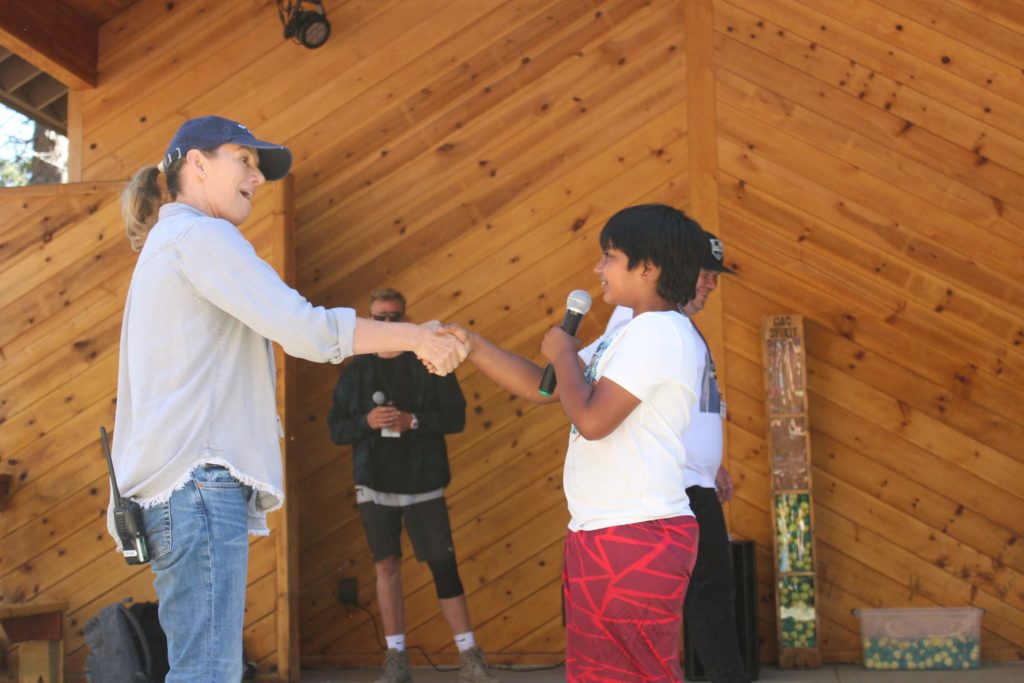
STEP 5: INTRODUCE THEM TO SOMEONE ELSE
“Have you met Joe?”
“Sam, this is Joe. He goes to my school.”
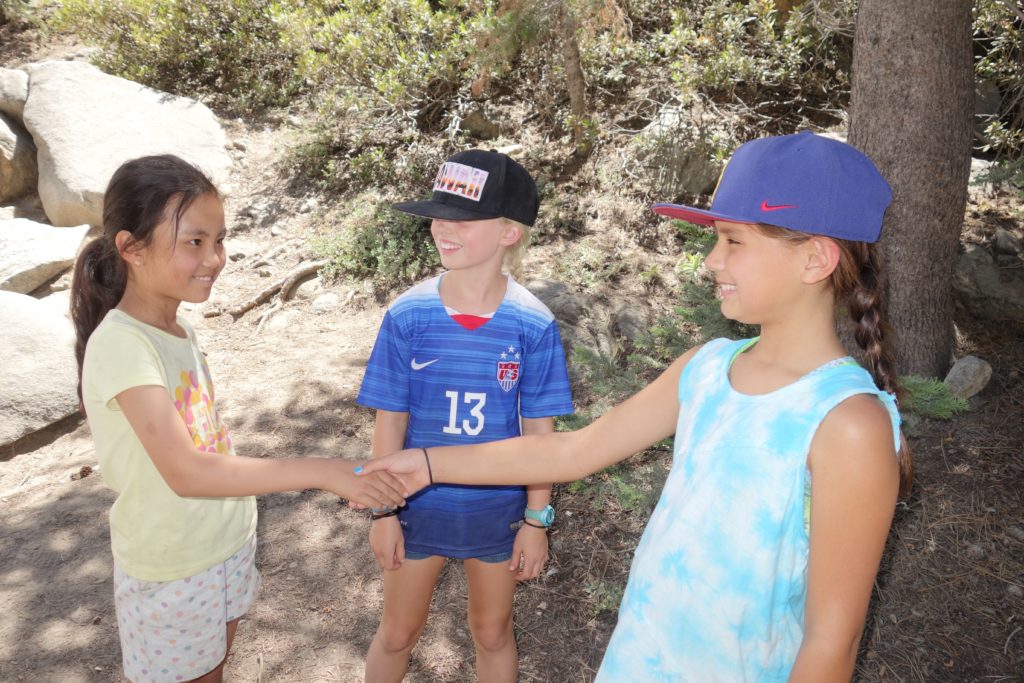
While these steps may sound simple to adults, sometimes we forget to actually explain the process of introducing ourselves and others to our kids. Like most skills, with a bit of gentle coaching, our kids can improve tremendously in these areas!

This summer, we reviewed these steps with staff and campers.
When I ask campers how they think their time at camp has changed or influenced them, campers often say that they’ve learned better skills at meeting new people and making new friends. Campers say that because of camp they are much more confident about meeting new people and making new friends. Some mention that they are more confident about starting at a new school or joining a new team or club because they know how to meet people and have learned to be more open and approach others with a smile and simple introduction.
Introducing themselves and introducing others is an important and useful social skill that we can easily coach our kids to master using these simple steps.
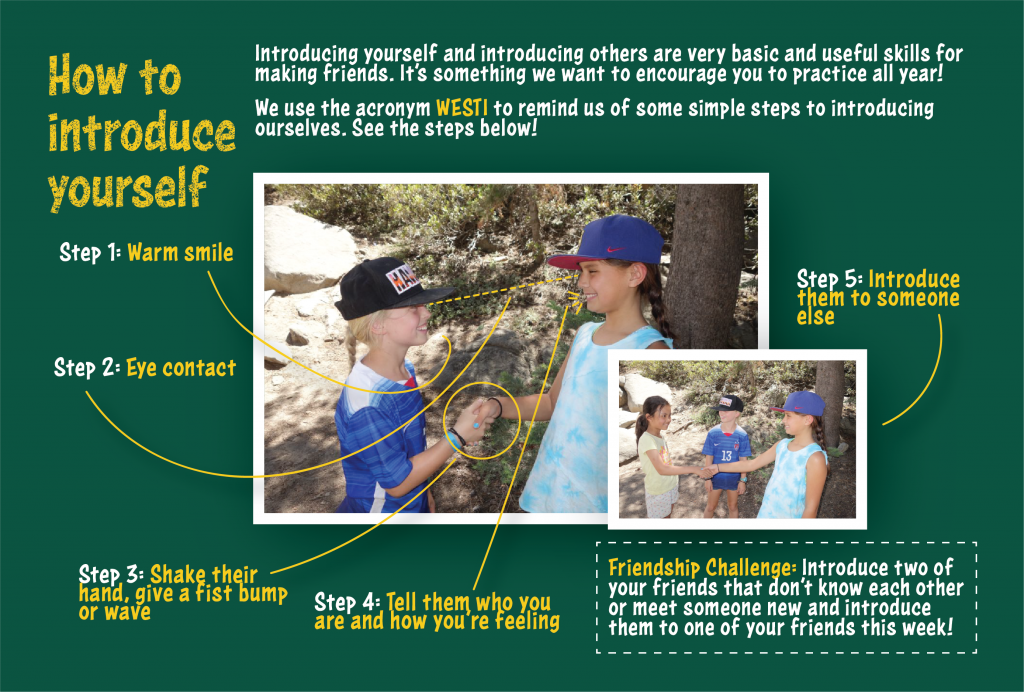
Resources/Related Posts
10 Friendship Skills Every Kid Needs
Ep. 2: 10 Friendship Skills Every Kid Needs
Making Friends: 3 Communication Skills Your Child Needs
Making Friends: Developing Emotional Intelligence
Making Friends: Managing Difficult Emotions
5 Steps to Help Kids Resolve Conflicts
http://www.parentingscience.com/kids-make-friends.html
http://micheleborba.com/teaching-kids-friendship-making-skills/
http://www.sheknows.com/parenting/articles/816710/Teaching-kids-how-to-make-friends-at-school
10 Parenting Tips from Camp Counselors
At one time in their lives, many of the parents I know were camp counselors. Those same people have told me that their time spent as counselors was great training ground for parenting. Among other things, they learned to comfort, encourage, set goals, and resolve disputes — all things we experience daily in our lives as moms and dads.
At one time in their lives, many of the parents I know were camp counselors. Those same people have told me that their time spent as counselors was great training ground for parenting. Among other things, they learned to comfort, encourage, set goals, and resolve disputes — all things we experience daily in our lives as moms and dads.
However, not every parent has had the benefit of camp counselor training. In fact, most parents have had NO training at all. Perhaps they took a Lamaze class or two, but we all know that having the kid is not the hardest part!
I’ve often lamented that all parents should be required to go through some training, at least the same training camp counselors do (a minimum of one week at most camps). Unfortunately, that is not the case, nor is it realistic. So the best we can do for those who were never camp counselors is offer a few tried and true tips from a few outstanding folks who were:
1. Practice catching kids doing the right thing.
2. Check in with each child one-on-one every day.
3. Establish fun daily traditions: share highs & lows at dinner or bedtime, do riddles, read a book out loud, play games together, collect family memories.
4. Sing and dance together A LOT.
5. Smile and stay positive. Apologize for any crabbiness.
6. Address difficult issues privately and by focusing on the ISSUE not the child.
7. Do team-building activities like sharing goals and dreams.
8. Get unplugged and focus on face-to-face communication.
9. Get outside and get dirty.
10. Follow a predictable schedule and enforce rules consistently.
